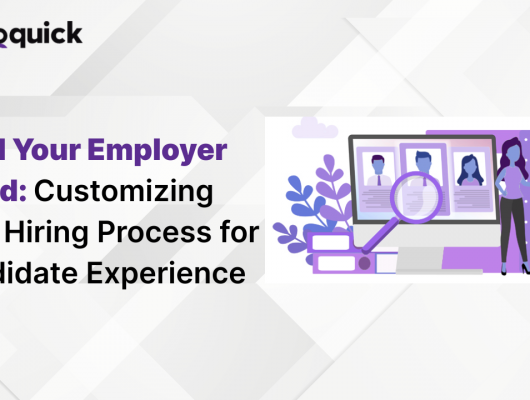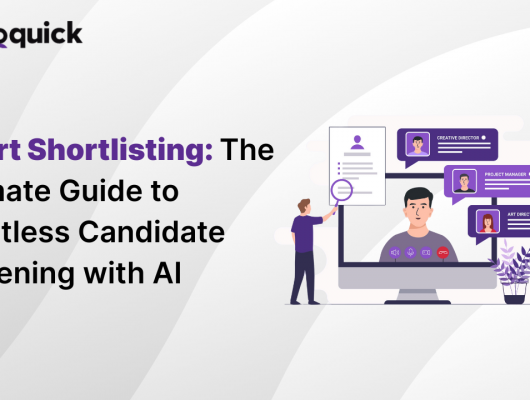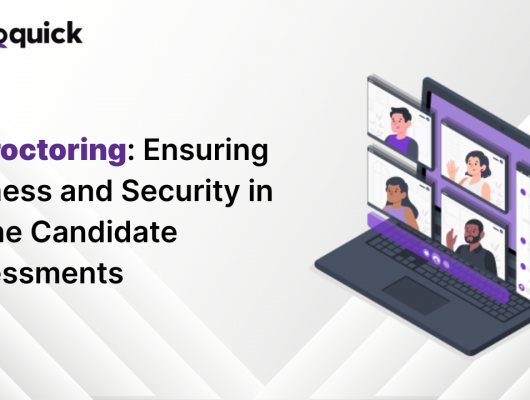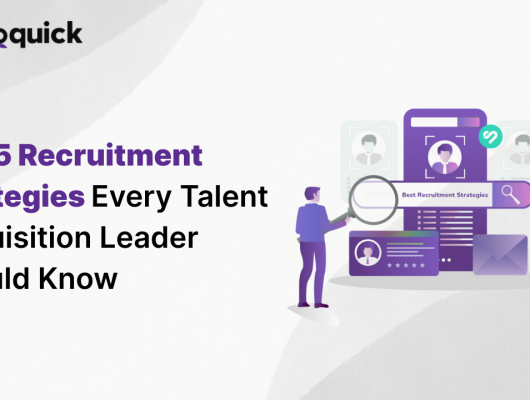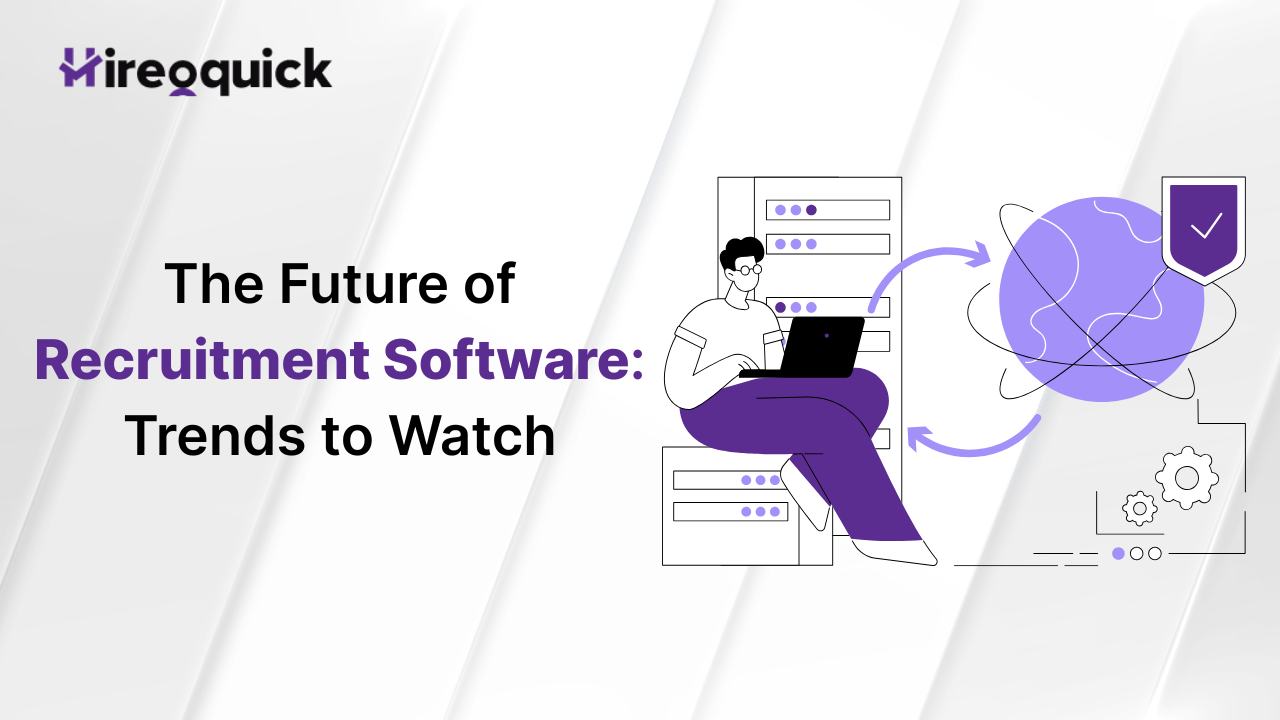
Recruitment software has been a game-changer for businesses looking to streamline their hiring process. Over the years, this technology has evolved from simple applicant tracking systems (ATS) to sophisticated platforms that help organizations manage every stage of recruitment—from job creation to onboarding. As businesses embrace new technologies and face an increasingly competitive talent market, recruitment software is evolving to keep up with these demands. Future recruitment software will boost efficiency and enhance the candidate experience. According to a report by Deloitte on the role of technology in recruitment, businesses that adopt advanced recruitment technologies are seeing improved hiring outcomes, including faster placements and better-quality candidates.
The global workforce is evolving, and as competition for top talent increases, organizations are leveraging AI to stay ahead of the curve. AI can help with various stages of the hiring process, from creating job descriptions to onboarding new hires. It can even analyze patterns from past hires to predict the best candidates for a role. Artificial intelligence (AI) is revolutionizing talent acquisition. This includes AI-driven candidate sourcing, screening, and assessment. Advanced AI algorithms improve candidate-job matching and offer insights into soft skills and cultural fit.
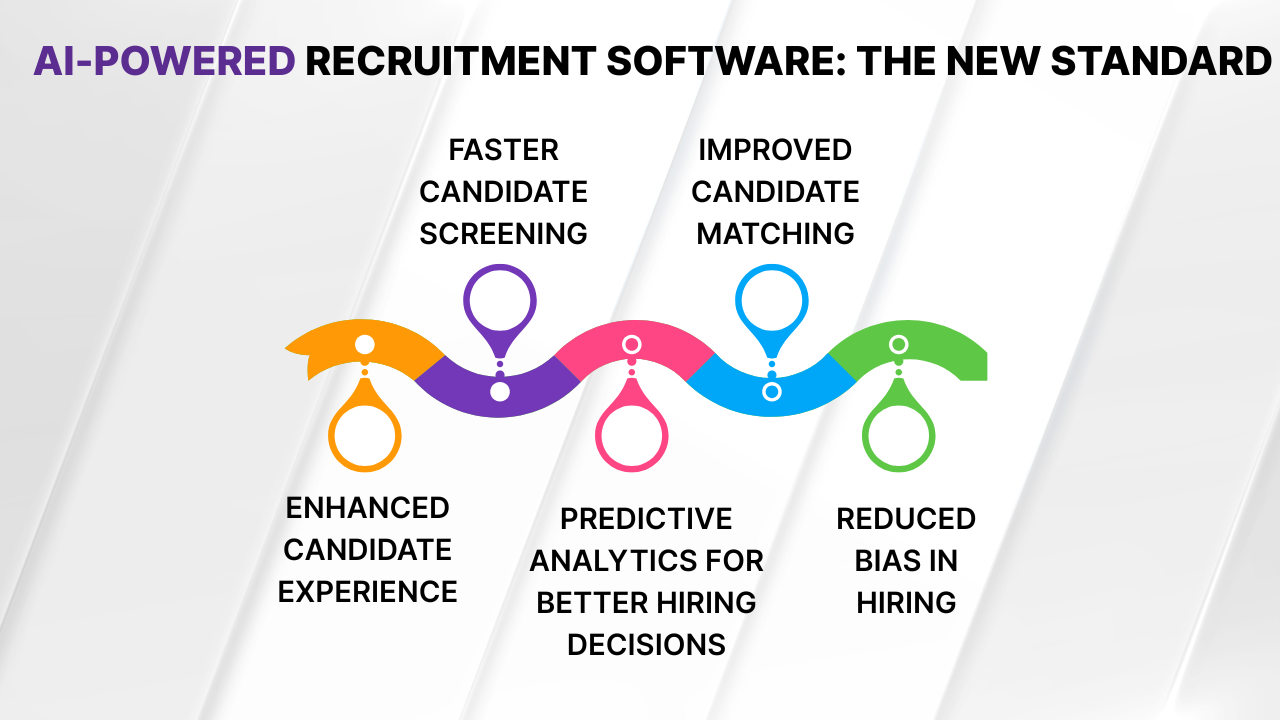
AI-Powered Recruitment Software: The New Standard
Faster Candidate Screening
Traditional recruitment methods often involve manually reviewing dozens of resumes to identify the most qualified candidates. AI-powered tools automate resume screening by using NLP and machine learning to quickly identify relevant skills and rank candidates, reducing time spent on this task and allowing HR teams to focus on top candidates. HireOquick’s AI resume parsing analyzes resumes in seconds, ensuring no qualified candidate is overlooked, even in large applicant pools.
Improved Candidate Matching
AI recruitment software doesn’t just match candidates to job descriptions based on keywords. It uses advanced algorithms to assess a candidate’s skills, experience, personality, and even cultural fit within the organization. By analyzing a broader set of data points, AI can identify candidates who are more likely to succeed in the role and remain engaged long-term. These insights help managers choose candidates who fit the role and company culture, boosting retention and reducing turnover.
Reduced Bias in Hiring
Human biases, whether conscious or unconscious, can significantly impact hiring decisions. AI-powered recruitment software helps reduce these biases by relying on data-driven insights instead of personal impressions. AI algorithms are trained to evaluate candidates based solely on their qualifications and experience, ensuring a more objective and equitable hiring process. AI tools can hide details like names and gender to reduce bias and support diversity in hiring.
Enhanced Candidate Experience
Candidates today expect a seamless and professional hiring experience. AI recruitment software automates interview scheduling, communication, and follow-ups, ensuring timely responses and a smoother candidate experience. Platforms like HireOquick even integrate AI-driven chatbots to answer candidate questions in real-time, improving communication and engagement while reducing the administrative burden on HR tech teams.
Predictive Analytics for Better Hiring Decisions
AI doesn’t just analyze current data; it can also use predictive analytics to forecast future trends. AI recruitment tools analyze past hiring data to spot patterns in successful candidates, helping HR make better decisions and predict who will thrive, improving hire quality over time.
Candidate Experience Will Be the Core Focus
Personalizing the Candidate Journey
In the future, recruitment software will focus more on personalizing the candidate experience. The hiring process should no longer be a one-size-fits-all approach. Recruitment software will provide tools to engage candidates throughout a customized journey, tailored to their needs.
AI chatbots will assist candidates by answering questions, providing assessment feedback, and offering personalized job recommendations.This personalized experience will help companies build stronger relationships with potential hires, ensuring a smoother hiring process.
Real-Time Feedback and Communication
With recruitment software becoming more sophisticated, candidates will expect faster responses and real-time feedback. Gone are the days of long delays in the hiring process. Future recruitment platforms will enable HR teams to maintain constant communication with candidates, providing updates and feedback throughout each stage of the hiring journey. This will make the process feel more transparent and engaging, leading to a more positive candidate experience.
Increased Use of Video and Virtual Interviewing
Virtual recruiting has become essential in the modern hiring landscape, and its importance is only set to increase. Video interviewing allows employers to assess candidates remotely, saving time and broadening the talent pool. With advancements in recruitment software, conducting video interviews will become even more seamless.
Future recruitment software will include features that integrate video interviewing with scheduling, feedback, and candidate assessments. Real-time collaboration and AI-powered interview analysis will allow HR teams to make better-informed decisions analyze body language and tone to assess soft skills, making video recruiting key in remote hiring.
Recruitment software with integrated video interviewing capabilities will enable HR teams to conduct interviews more efficiently and with less hassle, reducing the costs associated with in-person interviews and expanding the talent pool.
Recruitment Analytics: Data-Driven Hiring Decisions
The Role of Recruitment Analytics
In the future, recruitment software will play a major role in gathering and analyzing data throughout the hiring process. Recruitment analytics can provide HR teams with valuable insights into recruitment metrics such as time-to-hire, cost-per-hire, and candidate sourcing effectiveness. By analyzing recruitment data, businesses can identify patterns, improve their hiring strategies, and refine their recruitment processes. AI in recruitment software helps identify top candidate sources, allowing HR to focus on high-performing channels.
Predictive Analytics for Smarter Hiring
Predictive analytics will be a powerful tool in the future of recruitment software. By analyzing historical data, recruitment software can help predict the success of a candidate based on factors such as previous job performance, skills, and cultural fit. This will enable HR teams to make more informed decisions about whether a candidate is a good fit for the role and the organization.
Remote Hiring and Global Talent Acquisition
As remote work grows, businesses will access global talent through recruitment software with remote assessments, video interviews, and AI matching. With these tools, companies will no longer be limited to hiring candidates in their immediate geographic area. Remote hiring and global talent acquisition will enable businesses to find top candidates faster, shaping the future of recruitment software.
Integration with Other HR Software and Platforms
As recruitment software advances, seamless integration with broader HR systems becomes crucial. Future platforms must connect with payroll, benefits, performance, and engagement tools for unified HR management. Seamless recruitment software integration creates a unified HR system, enabling holistic employee journey views and better HR decisions.
Customization and Scalability Future recruitment software will offer highly customizable features to cater to the unique needs of different organizations. Recruitment software will scale with business size, offering flexible pricing and modular features to fit specific needs.
HireOquick: A Cutting-Edge Recruitment Software Solution
This is a standout AI recruitment platform that helps businesses streamline hiring by automating tasks like resume screening, interview scheduling, and assessments, allowing HR to focus on strategy.
HireOquick integrates all stages of the recruitment process from job creation and candidate sourcing to assessments and onboarding into a single platform. Its advanced AI capabilities help HR teams make smarter hiring decisions by analyzing resumes, conducting assessments, and predicting candidate success. This ensures that companies select the best-fit candidates while reducing bias and increasing efficiency.
Whether you’re a small business or a large enterprise, HireOquick offers scalable solutions designed to fit your needs. By leveraging AI and automation, HireOquick helps businesses save time, reduce costs, and improve the quality of their hires.
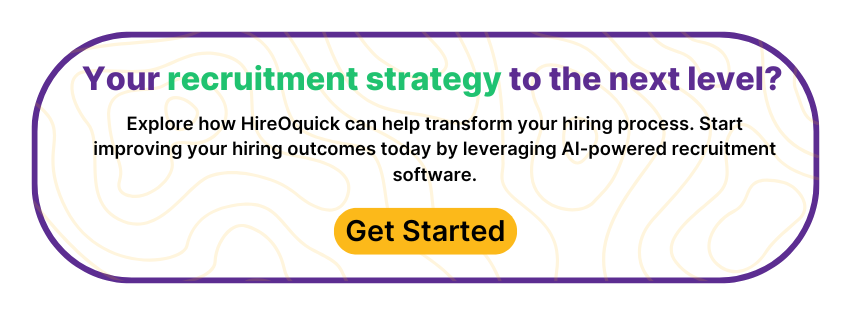
Conclusion: Preparing for the Future of Recruitment Software
The future of recruitment software is bright, with AI, automation, and data-driven decision-making shaping the landscape. As recruitment software continues to evolve, HR teams will benefit from faster, more efficient hiring processes, personalized candidate experiences, and smarter decision-making powered by data.
To stay competitive and attract the best talent, businesses must embrace these emerging trends and invest in the right recruitment tools. Platforms like HireOquick are already leading the way, offering businesses the opportunity to streamline their hiring processes and make more informed decisions.

